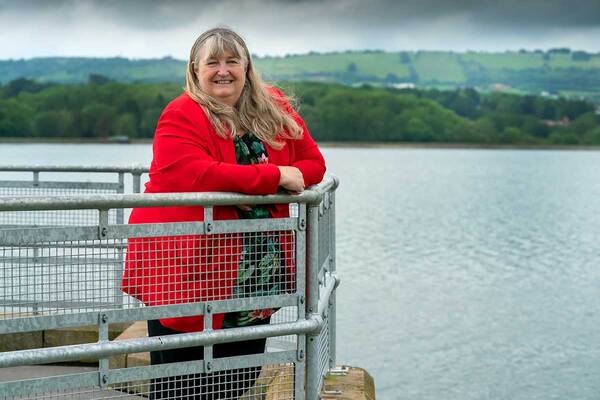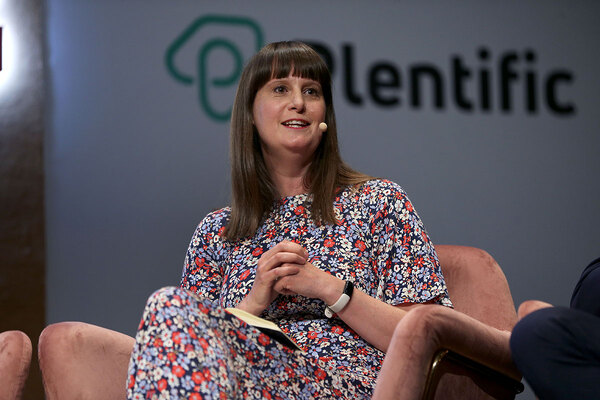Low-carbon heating: what the options are today
Heat pumps are the main feasible option for low-carbon heating right now. So how are landlords approaching them? Jess McCabe reports
Heating our homes causes about 14% of UK greenhouse gas emissions. This means we will need to make big changes, switching from traditional fossil fuels to greener options.
Policy to push this transition through is still uncertain (see box: What is UK government’s policy on heat?). But for social landlords grappling with asset management plans, the question of what technology will come next can’t wait until Whitehall, Cardiff and Holyrood set out a plan.
Inside Housing talked to landlords across the sector to find out how they are approaching the procurement of low-carbon heating today, and what the future holds.
Heat pumps
First up, the technology. In theory there are a few options – as Inside Housing reported earlier in the year, this could involve hydrogen.
But if you want to procure and install a low-carbon heat system today, the options are much more limited. The housing associations Inside Housing talked to for this story are all installing heat pumps. Essentially, these pumps use the same technology as a refrigerator to transfer heat from the air to indoors (air-source heat pumps), or from deep underground to indoors (ground-source heat pumps). They heat water, which then heats the home via radiators. A building needs to be reasonably insulated to make them economical.
“I’ve not really had a bad experience from a tenant saying they’re not happy with [a heat pump]. It’s going to be more economical than what they had”
A few social landlords are installing ground-source heat pumps (GSHPs), particularly in new builds, but most are going for cheaper air-source heat pumps (ASHPs) for existing homes.
Cost is the reason: buying an ASHP and installing it in a well insulated home might cost £6,000-£12,000. For ground source, it is more like £25,000, according to estimates by one housing association.
The extra cost mostly comes from digging underground to install a “ground loop” which absorbs heat from the ground. However, GSHPs are much more efficient and will result in much lower bills for the resident.
Landlords are currently installing ASHPs almost exclusively in ‘off-grid’ homes, which are not connected to gas. This means replacing electric storage heaters – which are expensive for residents to use, and difficult to get to produce heat at the time it is needed – as well as oil heating systems. They sit outside the home and look a bit like air conditioners.
“I’ve not really had a bad experience from a tenant saying they’re not happy with it. It’s going to be more economical than what they had,” notes Michael Hughes, planned maintenance surveyor at Soha, a 7,000-home landlord which has fitted about 100 ASHPs in the last year-and-a-half.
What is UK government’s policy on heat?
Within a few years, policies under consultation across the UK will mean new homes must use a low-carbon heating system, not gas. Policy for existing homes is less clear. UK-wide, heat pumps can be part-funded by the Renewable Heat Incentive, but that ends in April.
A new Heat and Buildings Strategy for England has been delayed multiple times, with reports suggesting that the cost of the plans is the reason.
“We’re all waiting for the heat strategy to come out,” says Patrick Chauvin from Stonewater. But he adds: “We can’t really wait that long for a decision, because if you think about if you have to invest, within five years, you’ll get into the next cycle of replacing your gas boilers.”
Sovereign has been installing ASHPs for a number of years and has also acquired some in mergers, adding up to about 1,000 pumps. Steve Thrush, its technical service specification writer, explains that the 62,000-home landlord is now preparing to procure a three to five-year programme of air-source heat pumps, with about 300 planned in the next year.
“We’ve got a high dependency at the moment on the manufacturers telling us what we need,” he says. “We propose to go out to the installers, and ask them as part of their tender to do a manufacturer evaluation of the manufacturers’ offers and come back with a ranked proposal on the best asset solution.”
Sovereign hopes to learn from this process and eventually in-source much of the knowledge, as well as installations and maintenance.
Supply chain issues have affected programmes, with some landlords reporting sourcing issues. Michael Jewell, deputy heating manager at Broadland, says a problem sourcing Mitsubishi ASHPs forced the housing association to switch to a different manufacturer, Vaillant.
Sovereign has been installing ASHPs for a number of years and has also acquired some in mergers, adding up to about 1,000 pumps. Steve Thrush, its technical service specification writer, explains that the 62,000-home landlord is now preparing to procure a three to five-year programme of air-source heat pumps, with about 300 planned in the next year.
“We’ve got a high dependency at the moment on the manufacturers telling us what we need”
But Oliver Mooney, category manager (construction) at Fusion21, the procurement framework, says the crunch point is actually in skilled specialists to design and specify installation. “Many suppliers are unwittingly using the same few specialists to bid for works. It won’t be long before this small resource is at saturation point,” he notes.
Policy may be uncertain for now, but it is hard to see a future which does not involve many more heat pumps. “There’s going to be a lot of individual domestic purchases taking place,” Patrick Chauvin, executive director of assets at Stonewater, says. Landlords are also expecting to move beyond off-grid homes at some point and replace gas boilers.
“Ethically we want to do it, we need to do it – we need the funding at scale to get on with it,” Mr Chauvin sums up.
Sign up for the IH long read bulletin
Already have an account? Click here to manage your newsletters














